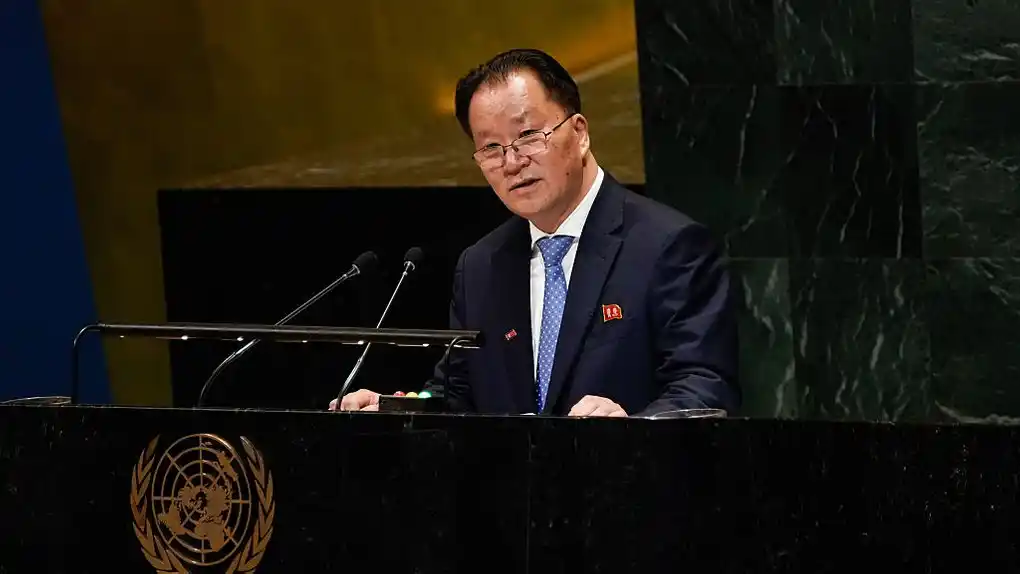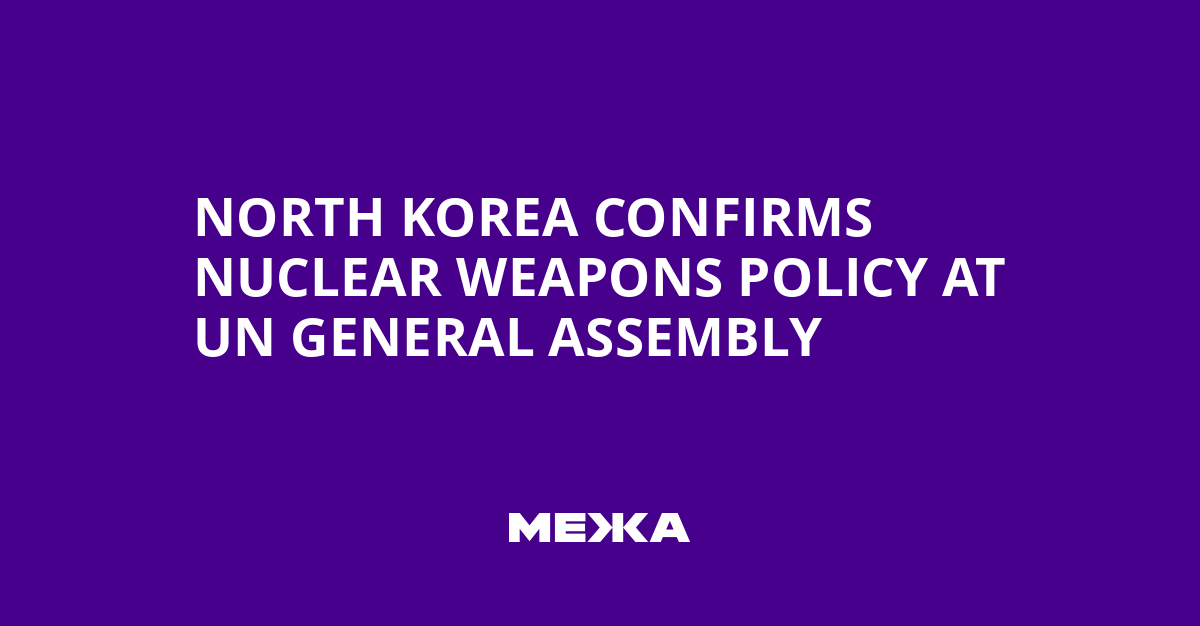
Kim Son-Gyon, Deputy Foreign Minister of North Korea, during the United Nations General Assembly (UNGA) in New York, United States, on Monday, September 29, 2025. Getty Images/John Lamparski
As reported by the media DW
North Korea at the United Nations General Assembly reaffirmed its unwavering stance on nuclear weapons: Deputy Foreign Minister Kim Son-Gyon stated that Pyongyang will never renounce nuclear weapons as a component of the country’s constitutional order. Such words became a key fragment of a public address during a global gathering of diplomats.
“Forcing denuclearization of the DPRK is tantamount to demanding to renounce sovereignty and the right to exist”
– North Korean diplomat in New York
The report also notes that the absence of full denuclearization does not mean there is no dialogue: Pyongyang states its readiness for negotiations, but insists on preserving the nuclear arsenal and providing appropriate security guarantees.
According to official statements, North Korea’s leader Kim Jong Un had previously expressed willingness to meet with the United States, but on the condition of preserving nuclear weapons and security guarantees.
The history of crises on the peninsula dates back to the first nuclear tests in 2006, after which North Korea found itself under international sanctions for prohibited weapons programs. In parallel at the General Assembly, other aspects of international security were discussed: issues of regulating the use of artificial intelligence in weaponry, as well as topics concerning North Korea’s cooperation with Russia and the possible involvement of North Korean troops in conflicts beyond the Korean region.
Context and Prospects for Engagement on the World Stage
Analysts emphasize that the DPRK’s position could influence future talks with the United States and other countries in the area of regional stabilization. In line with international discussions, the emphasis is on the necessity of dialogue and a careful balance between security and the possibility of a peaceful settlement, even taking into account North Korea’s long-standing nuclear discipline.
Overall, the speech at the UN General Assembly demonstrates that the topic of nuclear weapons remains central to global security and requires coordinated diplomatic efforts, oversight, and transparency to prevent a new escalation and to strengthen international stability in the region.
You may be interested in these materials:
